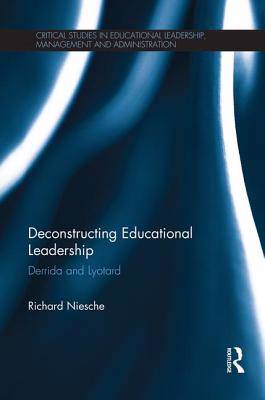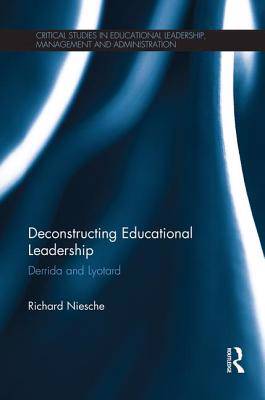
- Afhalen na 1 uur in een winkel met voorraad
- Gratis thuislevering in België vanaf € 30
- Ruim aanbod met 7 miljoen producten
- Afhalen na 1 uur in een winkel met voorraad
- Gratis thuislevering in België vanaf € 30
- Ruim aanbod met 7 miljoen producten
Omschrijving
Jacques Derrida and Jean-François Lyotard constitute two of the most notable figures of poststructuralist thought and philosophy of the postmodern period. Both worked to reveal instabilities and uncertainty, and to destabilise assumptions and self-evident traditions for the purposes of reflection, creativity and innovative thinking. This significant volume explores the key concepts central to the work of Derrida and Lyotard in relation to educational leadership, and reveals how these ideas challenge existing structures, hierarchies and models of thought.
Derrida's notions of difference and deconstruction, and Lyotard's concepts of language games, performativity and the differend, are specifically used to inform provocative and insightful critiques of the positivist assumptions and knowledge construction in the field of educational leadership. The book provides concrete examples of the application of theories to policy, literature and empirical data, and identifies ideas which continue to impact contemporary practices of educational leadership and management.
Included in the book:
- why bring Derrida and Lyotard to ELMA?
- a Lyotardian politics of the standards movement in educational leadership
- managing performance
- witnessing deconstructions of the leader-follower binary in ELMA
- limitations and critiques of Derrida and Lyotard.
This important volume in the series will be of value to all those working and researching in the field of Educational Leadership, Management and Administration.
Specificaties
Betrokkenen
- Auteur(s):
- Uitgeverij:
Inhoud
- Aantal bladzijden:
- 144
- Taal:
- Engels
- Reeks:
Eigenschappen
- Productcode (EAN):
- 9781138926592
- Verschijningsdatum:
- 9/06/2015
- Uitvoering:
- Paperback
- Formaat:
- Trade paperback (VS)
- Afmetingen:
- 156 mm x 234 mm
- Gewicht:
- 235 g

Alleen bij Standaard Boekhandel
Beoordelingen
We publiceren alleen reviews die voldoen aan de voorwaarden voor reviews. Bekijk onze voorwaarden voor reviews.











